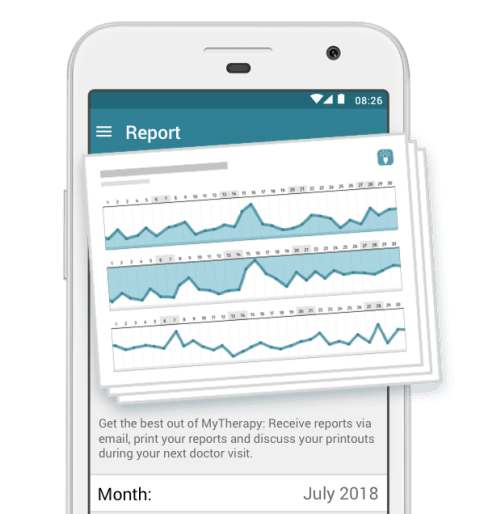Everyone knows they should exercise. It’s not a secret that even small amounts of physical activity can make a big difference in our overall physical health, but for people living with chronic illnesses, exercise can be far more difficult. Unfortunately, that doesn’t mean it’s any less important. The good news is that there are lots of possible exercises and by keeping in mind a few helpful tips, many people may find they are capable of more physical activity than they previously thought. If you or someone you love is affected by a chronic illness, read on for some helpful tips on incorporating exercise into daily life.
The Effect of Exercise on Chronic Illnesses:
As mentioned previously, exercise is good for everyone, but it can provide additional benefits for people living with chronic illnesses. Proper exercise can reduce uncomfortable symptoms, increase the quality of life, and make day-to-day functioning easier. In some cases, choosing the right exercise can reduce disease-specific symptoms, making it an important part of treatment.
Aside from the possibility of improving current conditions, exercise plays a large role in preventing the development of additional chronic conditions. There is a link between diseases such as type 2 diabetes, heart disease, and depression, and some chronic illnesses already put patients at an increased risk of developing these conditions. Even if nothing in this guide can be applied to your situation, these reasons are enough to make bringing up the topic of exercise with your doctor worthwhile.
General Tips for Exercising with a Chronic Illness:
Before diving into specific types of exercises, some general tips can be good to keep in mind. As they are general, some may not apply to your circumstances, but at least a few will likely be worthy of consideration.
Be informed:
It’s tempting to google some exercises and jump right in, but safely and effectively exercising requires planning. The first step should be speaking with your doctor. Odds are, they’ll be able to provide you with some basic guidelines regarding the types of exercises you should try, and more importantly, what to avoid. Be sure to also speak with your doctor about any medication you’re currently taking that could prevent you from engaging in certain activities. If your doctor determines that a workout program isn’t right for you, they can help you find an alternate solution.
Aside from speaking with your doctor about how your condition(s) and medication could affect a workout plan, you should also speak about general fitness. If it’s been a while since you’ve been active, you’ll want to make sure you can handle the type of activity you plan to partake in.
Don’t overdo it:
Exercise can feel great, and it’s easy to overdo it, especially when you’re just starting. The best advice to remember is to start slow and work your way up. Even very simple activities like a short walk or gentle stretching are a good starting point. You should also try and select activities that aren’t likely to worsen your symptoms. For example, if your condition involves back pain, try a low-impact activity like swimming.
Be ready to adapt:
Depending on your specific situation, certain exercises may be difficult, and it may be difficult to exercise how you hoped. Don’t be afraid to adapt and try doing things differently, as long as it works for you. Take yoga, for example, you can perform lots of exercises without leaving your chair and still improve your flexibility and reduce stress.
Adapting doesn’t just apply to chronic illnesses, a big part of exercising successfully is building habits. Nothing breaks a habit like bad weather and no backup plan. Make sure you have a plan-b ready in case your primary exercise falls through. Even something simple can help to reinforce the habit of exercising regularly.
Exercises for Common Chronic Illnesses:
Weight training:
Lifting weights, even very small ones, can help to relieve some of the symptoms of certain chronic illnesses as well as decreasing the risk of developing new conditions. It can also help to improve mental health and overall fitness levels. However, weight training can lead to injury if done improperly. For this reason, it’s only recommended to train with weights after consulting with your doctor or a physical therapist.
Light Cardio:
Light cardio such as walking or riding a bike is a great first step towards improved fitness. Even short walks improve cardiovascular health, boost energy, and improve flexibility. Not only does this provide a great starting point if you hope to move to more advanced exercises, but it may also be enough to help with some symptoms on its own.
Yoga:
Yoga is a very popular way of exercise and one that is known for its various health benefits. What many people don’t know is that it can be the perfect exercise for people with chronic illnesses. Studies have shown that yoga can help to relieve chronic pain alongside reducing the mental health impact of illness. Furthermore, yoga can be practiced in a wide variety of forms, making it a very accessible form of exercise. It can be practiced in ways that have minimum impact on sensitive areas while providing the maximum possible benefits. If you feel that yoga may be a good choice for you but don’t know where to start, consider speaking with a physical therapist.
Water Aerobics:
Like yoga, water aerobics can be practiced with minimal negative impact while providing similar benefits. Due to the wide range of possible exercises that fall into water aerobics, it can be tailored to fit your needs while remaining accessible.
These are only a few of the most common possible types of exercise. Even if none of these seem suitable to you, you can consult with your doctor for more specific advice on how you can improve your physical fitness.
Here are some other articles we think you might like:
How Exercise Can Lower Your Cholesterol & Keep Your Heart Healthy
MyTherapy and Accessibility: Medication Management for Everyone



